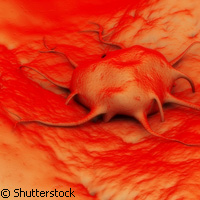MIRACLE project to advance cancer care
Researchers in Europe continue to fight the good fight against cancer, a devastating disease that affects more than 3 million Europeans each year. Joining this effort are researchers and industry actors from the MIRACLE ('Magnetic isolation and molecular analysis of single circulating and disseminated tumour cells on chip') project, which clinched EUR 7 million under the 'Information and communication technologies' (ICT) Theme of the EU's Seventh Framework Programme (FP7). Their goal is to develop a fully automated, integrated lab-on-a-chip (LOC) system for the detection and characterisation of circulating and disseminated tumour cells, CTCs and DTCs. The novel LOC will lead to faster and cost-efficient diagnosis of cancer. Until now, researchers have largely focused their energies on developing cancer treatments that are based on the biology of the primary tumour. The problem, however, is that most people die because the tumour disseminates to other parts of the body. Unfortunately, sometimes tumour cells survive in spite of treatments like chemotherapy. These so-called 'occult' cells, which fall under the radar of standard tests and so remain undetected, can travel through the blood stream to different sites and develop metastatic diseases. Enter the MIRACLE project which is determined to isolate, count and characterise these low-lying cancer cells since they are believed to be therapeutically and prognostically significant. In particular, the team believes that tracking these cells could help to diagnose cancer dissemination, or to follow up patients during therapy. The MIRACLE partners explain that detection analyses of CTCs and DTCs are currently conducted in high-priced medical laboratories that take a great deal of time and exhaust a lot of energy to perform sample processing and cell isolation. Typically, more than 24 hours are needed to perform a full tumour cell detection analysis. MIRACLE's advanced LOC system will essentially help consolidate the processing steps, resulting in accelerated, user-friendly and cheaper detection of tumour cells in the blood. The MIRACLE project partners will use the expertise and know-how acquired within an earlier project to make their lab-on-chip system a reality. MASCOT ('Integrated microsystem for the magnetic isolation and analysis of single circulating tumour cells for oncology diagnostics and therapy follow-up'), which received EUR 2.5 million under the 'Information society technologies' (IST) Thematic area of the EU's Sixth Framework Programme (FP6), successfully developed individual microfluidic modules for cell isolation, cell counting, DNA (deoxyribonucleic acid) amplification and detection. Led by the Interuniversity Microelectronics Centre (IMEC) in Belgium, the MIRACLE consortium will use an array of electrochemical sensors to detect cancer cells before extracting their genetic material and amplifying multiple cancer-related markers. Ultimately, the LOC system will help revolutionise cancer diagnostics and individualised treatment approaches. MIRACLE project partners include the Universitat Rovira I Virgili (Spain), the Institut für Mikrotechnik Mainz, AdnaGen, ThinXXs and Consultech (Germany), MRC Holland (Netherlands), the Oslo University Hospital (Norway), the KTH Royal Institute of Technology, Multi-D and Fujirebio Diagnostics (Sweden), ECCO (European Cancer Organisation, Belgium), and Labman (UK).
Countries
Belgium, Germany, Spain, Netherlands, Norway, Sweden, United Kingdom



